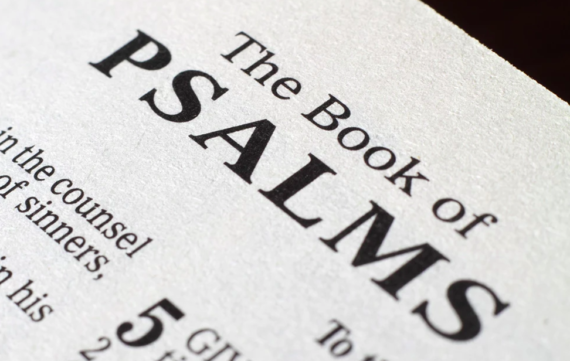Psalm 34
This is an acrostic Psalm. Structurally, it is very much like Psalm 25. It is therefore very difficult to feel completely confident about any attempt to break it into parts according to content or theme. But perhaps the following observations will help us grasp the message.
Initial call to worship
I will bless the Lord at all times; his praise shall continually be in my mouth. 2My soul makes its boast in the Lord; let the humble hear and be glad.
3Oh, magnify the Lord with me, and let us exalt his name together!






This psalm is a call to worship. “Come, let us worship the Lord” (1).There seems to be an intentional paradox of boasting and humility (2). There is an insistence on involving others in praise (3).
Reasons for worship
Verses 4-10 then give some of the reasons why we ought to worship the Lord.
I sought the Lord, and he answered me and delivered me from all my fears. 5Those who look to him are radiant, and their faces shall never be ashamed. 6This poor man cried, and the Lord heard him and saved him out of all his troubles. 7The angel of the Lord encamps around those who fear him, and delivers them. 8 Oh, taste and see that the Lord is good! Blessed is the man who takes refuge in him! 9Oh, fear the Lord, you his saints, for those who fear him have no lack! 10The young lions suffer want and hunger; but those who seek the Lord lack no good thing.
The Lord’s provision is described in memorable ways. Personal experience of provision is mentioned (4-5); and this personal experience is to be expected by others who will seek him (6-9). Lions are less likely than most animals to be in need, and young lions especially. Yet those who seek the Lord — even if they are poor (6) — will lack nothing (10).
Fear of the Lord
Verses 11-16 tell us what it means to fear the Lord.
11 Come, O children, listen to me; I will teach you the fear of the Lord. 12What man is there who desires life and loves many days, that he may see good? 13Keep your tongue from evil and your lips from speaking deceit. 14Turn away from evil and do good; seek peace and pursue it. 15The eyes of the Lord are toward the righteous and his ears toward their cry. 16 The face of the Lord is against those who do evil, to cut off the memory of them from the earth.
This instruction is much needed today. People are very confused as to what it means to fear or seek the Lord. It does not mean cowering in a corner and avoiding him. Nor does it mean merely saying, “I seek the Lord.” It means controlling our tongues (13). It means avoiding evil and doing good (14-16). As James will teach centuries later, real faith, real seeking of the Lord, real fear of the Lord will be active.
Deliverance through trouble
Verses 17-22 make it clear that the promise is not freedom from trouble, but deliverance through trouble.
17When the righteous cry for help, the Lord hears and delivers them out of all their troubles. 18The Lord is near to the brokenhearted and saves the crushed in spirit. 19Many are the afflictions of the righteous, but the Lord delivers him out of them all. 20He keeps all his bones; not one of them is broken. 21Affliction will slay the wicked, and those who hate the righteous will be condemned. 22The Lord redeems the life of his servants; none of those who take refuge in him will be condemned.
Taken selectively, this is used by the preachers of the prosperity gospel to support their unbiblical claims. But this psalm does not claim that we will never be caused to cry for help, or that we will never be brokenhearted or crushed in spirit. We will suffer these things, but in the end the faithful will be delivered.
This certainly agrees with the teaching of Jesus and of the New Testament as a whole. Jesus said, “I have said these things to you, that in me you may have peace. In the world you will have tribulation. But take heart; I have overcome the world” (John 16:33). Paul added, “For this slight momentary affliction is preparing for us an eternal weight of glory beyond all comparison, 18as we look not to the things that are seen but to the things that are unseen. For the things that are seen are transient, but the things that are unseen are eternal” (2 Cor 4:17-18).
Let us worship the Lord and call others to do so. Let us worship him, for he has abundantly provided for us. Let us worship him, for he will deliver us through the manifold trials of this sin-filled world.

